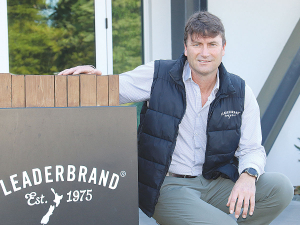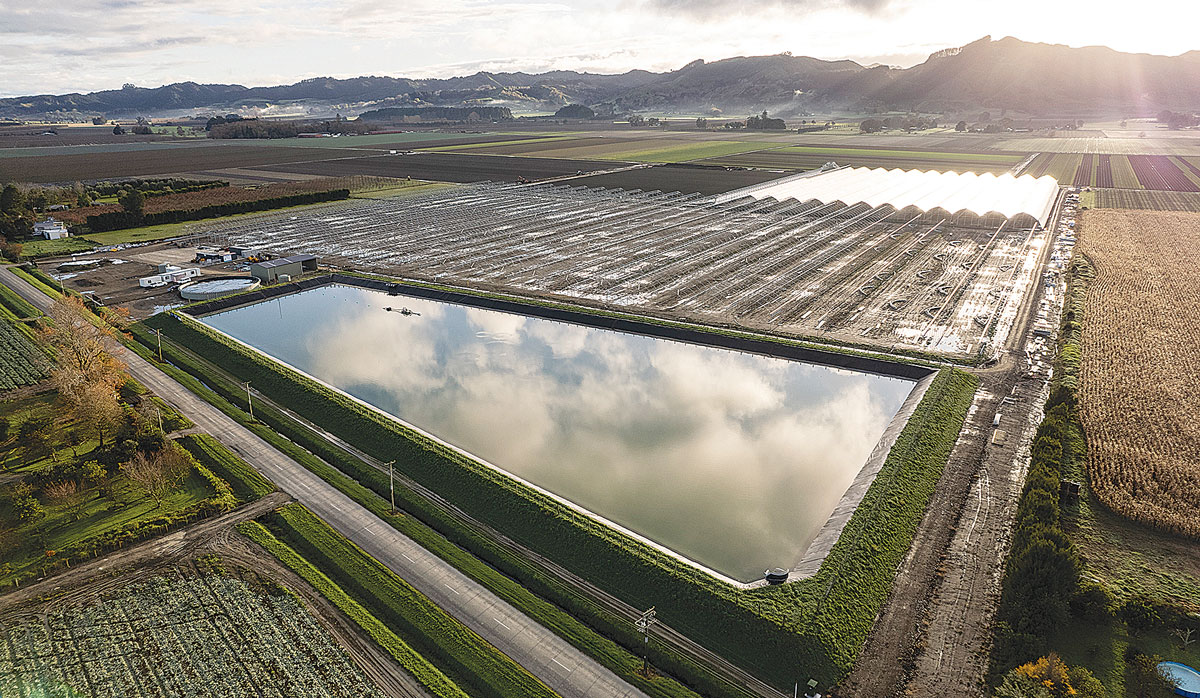Horticulture leader Dr Stuart Davis remembered for lasting legacy
A pillar of New Zealand's horticultural industry, Dr Stuart Davis, was farewelled at a well-attended funeral service in Tuakau, South Auckland, on December 18.
 Leaderbrand chief executive Richard Burke says growers need to focus on what they do well and on the positives in the industry.
Leaderbrand chief executive Richard Burke says growers need to focus on what they do well and on the positives in the industry.
One of the country’s leading commercial vegetable growers says there are a lot of positives happening in the sector and it needs to get these out to the public.
Chief executive of Gisborne-based Leaderbrand Richard Burke told Rural News that growers are a resilient bunch and need to focus on what they do well and on the positives in the industry. He says there is whole lot of really good changes happening in the commercial growing area – including how the sector does business and how it attracts people to work for it.
Burke says there are massive opportunities and the industry needs to embrace change.
“We can’t protest our way backwards,” he adds.
Burke’s comments come after a year in which his company – and most others in the sector – have faced big challenges dealing with adverse weather conditions, which has seen many crops ruined, effectively drowned by the floods and storms.
“La Nina started for us in February and to be fair it seems to have never let up.”
Burke says while the weather has improved, he’s not sure if the weather patterns will change in the coming months. He says the good news is the weather has got warmer, meaning the ground is drying out quicker.
“It has still been tricky trying to organise our planting programme to meet market demand in the next three to four months,” he adds. “Overall, it’s been a messy start to the growing cycle with some of the early crops struggling.”
With Christmas looming, Burke says there is a move by supermarkets to get salad products on the shelves. He says, at this time of the year, there is extra demand for salads.
"But our peak weeks tend to be later in January, once people get over the crazy shopping habits they have at Christmas and get into that summer swing of BBQ’s and salads and fresh corn and all that,” he explains. “For us, the period from mid- January to mid-February is the peak in the domestic market sense.”
Driving Down Costs
In recent times, there has been a lot of talk about the high cost of fruit and vegetables.
However, Burke says the philosophy of Leaderbrand is not to measure profitability on a daily basis.
“We are not in the game of growing something and saying it costs us ‘x’ to grow so we will add a margin on it,” he told Rural News.
“Rather we are in the game of growing something and selling it based on the supply we have and the demand in the market at any given time in the year. We might be selling product for less than it cost to produce or more than it cost us to produce – we never know because we run on averages and efficiency.”
Burke says doing things at scale is a key way of driving efficiency and being competitive. He believes that by doing things at scale they are able to drive volume, reduce overheads and lower the cost of production.
Big Glasshouse Comes Into Its Own
With the salad season starting to peak, Leaderbrand is now able to take advantage of its new 10ha, $15 million glasshouse it is building.
Already, 3.5ha have been completed and it is now producing mainly rocket and baby leaf lettuces for the salad packs the company sells in supermarkets nationwide.
 |
|---|
|
Leaderbrand is in the process of erecting this massive $15 million glass house, that is 10.7 hectares in size and supported by a dam that holds 40 million litres of water to irrigate the facility. |
Burke says after some initial trials, which included plantings of some herbs as well as leafy greens, the completed 3.5ha section of the glasshouse is now producing commercial crops. He says the early trials consisted of sensory and shelf life tests and they are happy with the results.
“At the moment, we are sticking with the rocket and baby lettuce,” he told Rural News. “We have trialled spinach, but in the summer this grows well out-doors.
“However, we will plant this inside if the weather gets wet.”
Burke says work is well underway on completing the remaining 7ha of the glasshouse and the goal is to have that in production by next winter.
DairyNZ says the Government’s proposed Resource Management Act reform needs further work to ensure it delivers on its intent.
Overseas Trade Minister Todd McClay says he's working constructively with the Labour Party in the hope they will endorse the free trade agreement (FTA) with India when the agreement comes before Parliament for ratification.
Donald Trump's latest tariff tantrum has again thrown the world of trade into a new round of turmoil and uncertainty, and NZ is caught up in it.
The third edition of the NZ Dairy Expo, held in mid-February in Matamata, has shown that the KISS principle (keep it simple stupid) was getting a positive response from exhibitors and visitors alike.
Twenty years ago, South African dairy farm manager Louis Vandenberg was sent to a farm in Waikato to provide training on Afimilk technology.
Strong farmgate milk price is helping boost investment on farms, says PGG Wrightson chief executive Stephen Guerin.

OPINION: A mate of yours truly reckons rural Manawatu families are the latest to suffer under what he calls the…
OPINION: If old Winston Peters thinks building trade relations with new nations, such as India, isn't a necessary investment in…